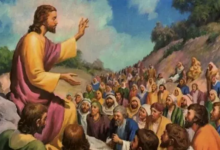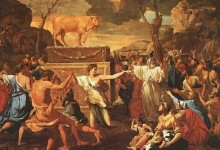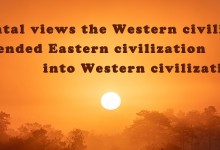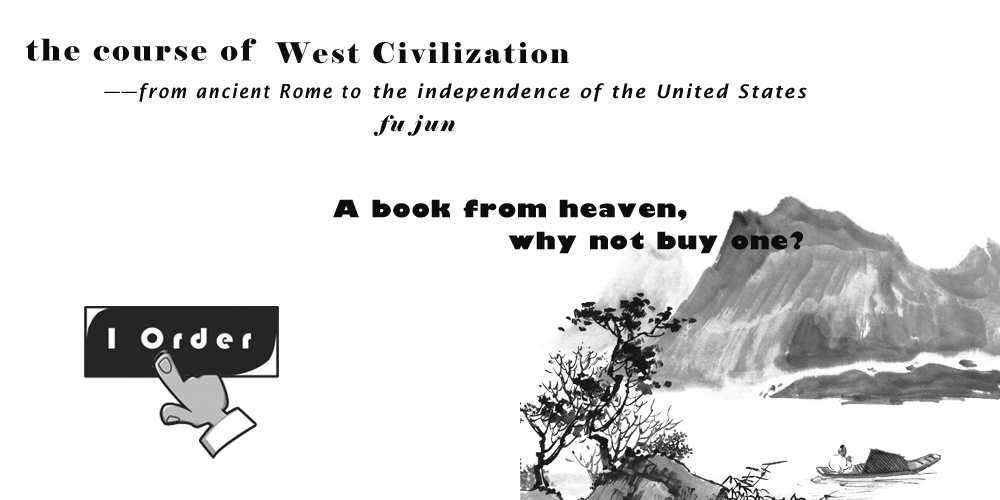preface

The origin of religion

Who’s the man? Where do we come? Where do we die? What do we live for? Why do we come to this world to suffer endless agony? These problems of the origin of life are the most fundamental, significant matters of our lives. Perhaps the busy worldly life drowns our thinking about these problems, but when the night is quiet, we feel that youth has gone away forever, time is passing by, and life is sneaking into the twilight years. These problems will suddenly appear lingering in our minds and can’t be dispelled for a long time. These are the problems that all faith-based religions have to solve. This is also the reason why there has been primitive worship, admiration, and primitive religions since the first day of human society. People come to this world inexplicably; there are always countless questions, so we always seek the meaning of life, the significance of being. Life is but a span, leaves in a flash. Springtime is lost in a hurry, and time flows away like fleeting water. We are like a small meteor in the eternal cosmos, suddenly retiring from sight, a small wave in the endless sea, fading away into the sea in a blink, Or like the gorgeous mountain flowers in twilight spring, immediately withering off in the mud. No matter how hard I have written, I can’t compare to those great poems in history. Let us look at these great poems and the profound, deep thoughts of the author. The first is the “Boating at the Red Cliff” of Su Shi. I think this is the most charming piece of ancient essays; I rank it first in all articles over thousands of years.
“I became serious, sat tight, and asked the guests, “Why is your music so mournful?” The guest said,” The moon is bright, the stars are scattered, the crows fly south. Wasn’t this the poem of Cao Mengde? Here west to see Xiakou, here east to watch Wuchang. The mountains twist the rivers, coated by somber green. Wasn’t it where Zhou Yu besieged Cao? At that time, Cao stormed Jingzhou, and ramed Jiangling, advancing eastward down the Yangtze River, fleets lining in long rows, flags and banners filling the sky. Drinking before the rolling river and composing poems with a spear in his hands, Cao was indeed the hero of the time. But where was he now? As for you and me, we fished in the river, wooded on the mountains, companying with shrimps and friending with deers. We rowed a boat, toasting each other like tiny mayflies surviving in the immense universe or small grain being in the vast ocean. We lamented our fleeting life, envied the everlasting river, wished hands with fairies roaming to heaven and embracing the bright moon to eternity. Yet we know this cannot archive; after all, we can only put out regret into the music, deliver it to the sad autumn wind.”

Welcome to https://readjoys.com/,https://www.amazon.com/dp/1734417633,https://www.amazon.com/dp/1734417609,read, buy“The Course of West civilization” online

What a hero Cao Mengde is? he can shake heaven and earth. Now he is just a pile of bones, a solitary tomb. Not to mention us, we are common people, ordinary men; our lives are as humble as a mayfly that can only survive a few hours and as slight as tiny water drops in the vast sea. Look at the ancient Yangtze River, the remote moonlight, and the vast and infinite universe behind them. We can only mourn the insignificance of our life,” Lament our fleeting life “, sigh the boundless of the universe.” envy the everlasting river “, and “wish hand with fairies roaming to heaven and embracing bright moon to eternity “. I think it is the ultimate dream of every Chinese, every person influenced by Chinese culture, we are immortality, strolling between heaven and earth forever, living in heaven and earth everlasting, shining with the sun and the moon timeless. Still, everyone knows that this is just a luxury dream that can never be realized, so our sadness pours out.
The second poem is Zhang Ruoxu’s “A Moonlit Night On The Spring River”. On countless full moon nights, I lingered about the banks of the Jiulong River in my hometown, looking up at the bright moon, looking down at the virgin of the tranquil river. One poem is always floating in my mind. With this poem, my thoughts fly far, far away, far, far away.
“Who by the riverside first saw the moon rising?
When did the moon see a man musing at the riverside firstly? generation after generation humans live in endless life,
years by years the moons look alike,
we do not know whom the moon waiting for tonight,
only see river moving link rolling”

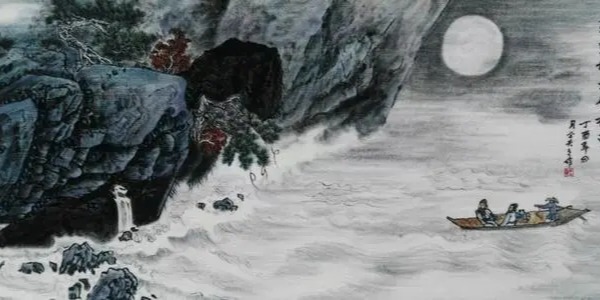

Where do humans come from? When did humans come to this world? Does this world exist before human beings? Generations follow their inherent footsteps, birth, growth, marriage, aging, and death, but the fate of each generation is very different. Each generation has its own story and legend; each has its own happiness, joy, misery, and sorrow and will inevitably go to death in the end. But the moon is always just that moon; the moonlight is so tender and soft as water, the Yangtze River is always the Yangtze River, and the river is ever so gentle and peaceful. How can’t this sentiment make people sigh with all sorts of feelings? Sigh, the rising and falling of destiny, the ebb, and flow of fate, the vicissitudes of life? How is the injustice of the Creator? Why can’t we exist forever like the moon and the river, enjoying on the riverbank forever, pleasing among the mild night breeze, delighting in the charm of the floral fragrance? The pursuit of eternal life, perfect happiness, and sacred purity is always the dream of everyone. We also know that it is impossible to achieve in reality, but human beings have a spiritual home, the dwelling of the soul, and the last resort in despair, religion. In religion, we can realize dreams through faith, which is why religion has existed since the first day of humans had consciousness.
Maybe you would say,” I am an ordinary and vulgar person. I never think about such profound and annoying questions “. But no matter how ordinary and vulgar you are, you always have troubles such as birth, old age, sickness, and death, especially the fear of death; transcending death and pursuing immortality is the direct cause of all human religions. It may be too profound and intellectual for ordinary people to pursue where life comes from? Or seek the meaning of life and the truth of life through religion. That may fit a few elites such as philosophers and monks but is not suitable for ordinary people. However, religion is absolutely suitable for everyone to transcend life and death and pursue eternal life, eternity. The vast majority of people cannot resist the temptation of eternal life. This is also the reason why religion is not mainstream in Eastern secular society, but there is still a lot of primitive worship among the people. Qin Shihuang was the first emperor of the world, and he was so heroic and invincible. However, he was also afraid of death in his later years and intoxicated with the art of immortality. He ordered Xu Fu with five hundred boys and girls to go abroad to look for the elixir of immortality, hoping to live forever. Another equally heroic Genghis Khan, who swept out the world, slaughtered countless cities, and killed people like flies, also feared dead in his old age. He asked Qiu Chuji, the Taoist leader of the Quanzhen Sect, about the technique of immortality and died of depression soon after he got nothing. These heroes are even afraid of death, let alone our ordinary people. Therefore, immortality and eternity can attract most people to believe in religion, which is also an inevitable content of any religion. How can it be religion without talking about immortality and eternity? For example, whether Confucianism is a religion is very controversial in academic circles. Although Confucianism has religious organizations and rituals, it hasn’t the substance of transcending life and death. Many scholars don’t think it is a religion, and I think so. Confucianism is not a religion because it does not contain transcending life and death, eternal life and eternity.

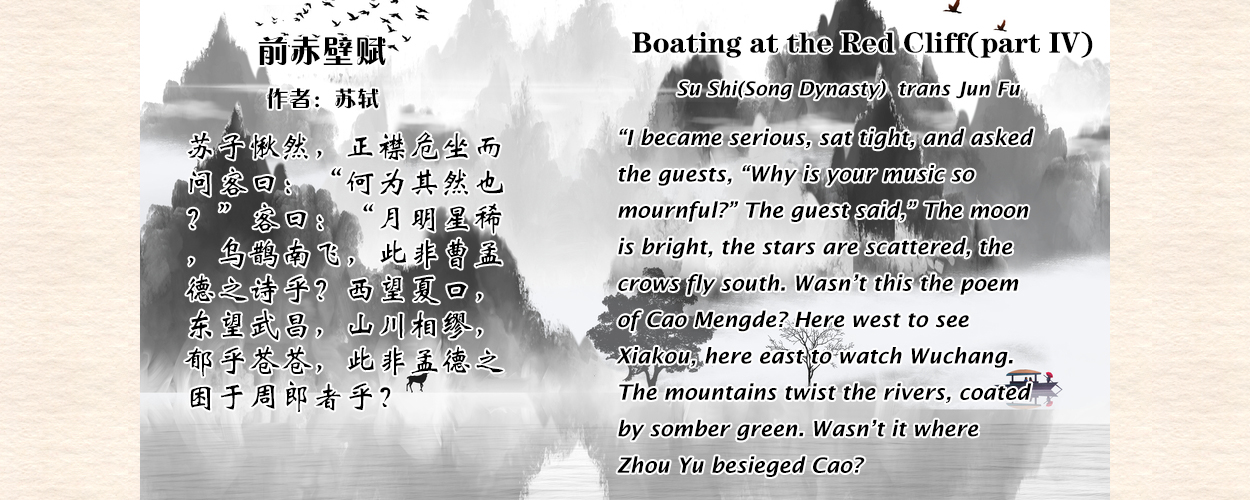
Welcome to https://readjoys.com/,https://www.amazon.com/dp/1734417633,https://www.amazon.com/dp/1734417609,read, buy“The Course of West civilization” online

Why do humans need religion? Our discussion above has given some answers: to seek the meaning of life, the truth of life, and at least to pursue eternal life, eternity. Then why can religion enable us to find the truth of life, transcending life and death? These things are obviously impossible in reality, so we have to talk about the essence of religion. Put it simply, the essence of religion is a belief in the existence of gods or supernatural beings. Believing in gods or supernatural beings can enable us to find the origin of human beings and the truth of life, which can transcend death. So we find that the essence of religion is simply the same as whether or not to believe in the existence of God, so people will inevitably have such questions, why can we only believe in the existence of God instead of confirming it? Wouldn’t it be better if we confirmed the existence of God instead of believing it? But the problem does not seem to be such simple. People often say,” if God appears in front of me, I will believe in religion.” however, God will never appear in front of us.” This is clearly stated in “the Diamond Sutra” of Buddhism and the Bible of Christianity. The two major religions clearly confirm so, and we should dispel the idea of seeing the true face of God as soon as possible. In fact, not only these two major religions, but many other religions have similar views. Why can we never see the true God? This is a long story. You can only be patient and listen to me slowly.
Why can the essence of religion only believe in the existence of gods and cannot be confirmed? This question can only be discussed from the origin of religion; otherwise, there is nowhere to start. Then, where did religion originate? Muller, the founder of religious studies, believes that religion comes from infinity; then, what is infinity? We can imagine a wise man among the most ancient humans. Looking up at the starry sky on a clear night, he suddenly felt extremely surprised. The starry sky tonight was farther and wider than other times, far beyond the scope of normal vision. He saw the world outside what he usually saw: more stars and a farther sky. He usually questioned about what the world was outside the sky, and what he saw tonight would satisfy his curiosity, but it has aroused new curiosity. What is the world beyond the starry sky seen tonight? Is it still a starry sky? Then what the world is beyond tonight’s sky that is beyond the usual sky? Is there a heavenly palace? Are there fairies dancing in it? With the innumerable curiosity of human beings, the innumerable questions, the innumerable worlds beyond the boundaries, the infinite is born, and the infinite is innumerable and has no limit.



Some people think that infinity is the opposite of finite, but the opposite of finite is obviously nothingness, is infinite nothingness? But infinity is also obviously not a concept of nothingness. The statement of existing the boundary of finite already affirms the existence outside the limit. It is impossible for us to draw a line as a boundary in space and time and deny the existence outside the boundary. Infinity is the existence outside the limits of finite. Infinite is not a negation of finite; it is a real existence, an existence that transcends finiteness. But it is undeniable that infinity and nothingness do have some similarities; that is to say, infinity and nothingness are always elusive and unpredictable.
We know its existence, but we can never know what it is?. Perhaps we will think that today, thousands of years later, science and technology have been extremely developed, and we can find infinity. But the facts can only confirm that law. The more known areas, the larger the unknown; humans are still confused even more. Of course, today, we are not looking up at the stars but on a more desperate journey because we can assume that we are driving a spaceship, traveling in boundless space, looking for the end of the endless world. What kind of journey is this? One after another, we pass through planets, galaxies, and black holes. We fly through limitless spaces and times, all of which are finite, but these finite are endless. They are innumerable, and our journey of exploration is also unlimited. Yes, we are looking for an infinite in an infinite journey, but we don’t even touch the edge of infinity; our life will be exhausted. Infinity is not nothingness because we are in infinity and truly feel its existence. But we can never know what infinity is? What a suffocating feeling? What a desperate horror? What terrifying leviathan is infinity, and how ignorant and insignificant human beings are, all the pride and superiority of humans instantly vanish in front of infinity; this is also the infinite and eternal sorrow of human beings.

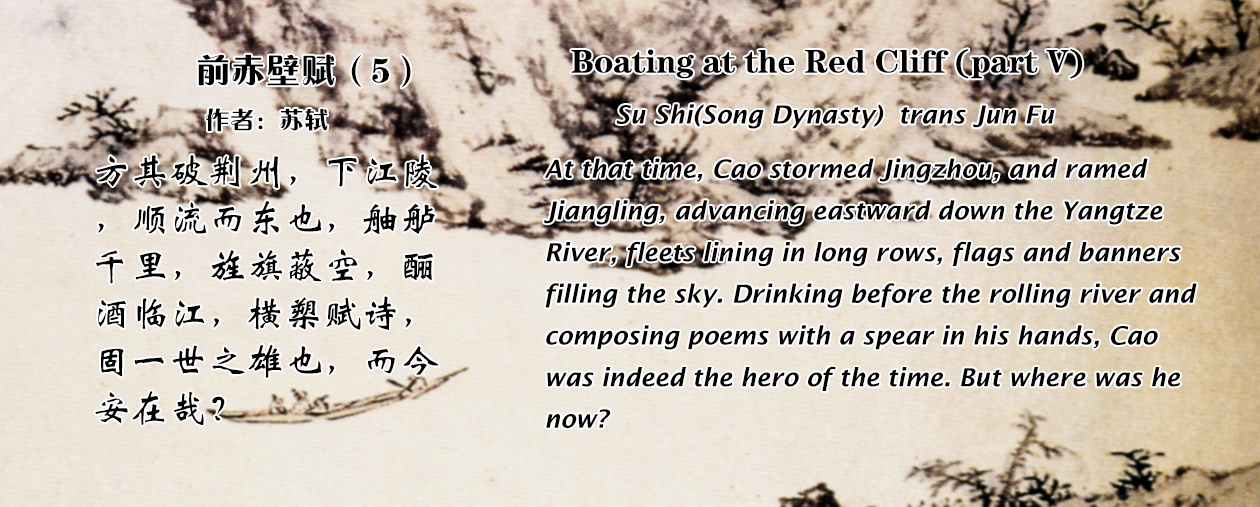
Welcome to https://readjoys.com/,https://www.amazon.com/dp/1734417633,https://www.amazon.com/dp/1734417609,read, buy“The Course of West civilization” online


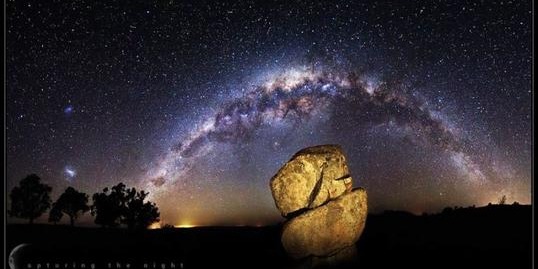

On the basis of Kant, Muller further believes that human beings have a third cognitive function parallel to perception and rationality, the function of knowing the infinite, that is, the function of generating religion and knowing the infinite through religion. The cognitive function of Infinite, infinite function, it can also be understood as that can grasp and abstract infinite from finite. Infinity is not the second cognitive function—rationality, but the product of the third cognitive function. Human beings understand finite with perceptual and rational functions. The third cognitive function generates religion to recognize infinity, and the third cognitive function generates religion. ②Müller did not continue to discuss this, but anyone who is influenced by Chinese culture can clearly see that infinity is the Tao in Chinese philosophy, and infinity is the Tao. Everything is in the Tao and is unified in infinity. If you continue to play in the metaphysical way of Chinese philosophy, it can be expressed as follows. In infinity, the infinity and the finite are unified. There is me in you, and you in me. The finite is infinite, and the infinite is also finite. Then, the world has come to the most primitive, original, and final world: the realm of primordiality, the beginning, and the chaos, that is, the realm of Tao, the realm of nothingness. The Tao is nothingness, nothingness born being, one born two, two born three, three born all, so the human world came into being. Heaven, earth, and everything are all produced by Tao, nothingness, and Infinity, which are the matrix of everything in the universe. Tao is equivalent to nothingness and infinity. It is a whole, independent existence, without beginning and ending, without a trace, but everywhere.
After going around a large circle, we finally know the origin of religion. It comes from infinity. It comes from the third cognitive function of human beings that is different from perception and rationality, the function of recognizing the infinite, so the God in religion actually represents the unknown and infinite. We humans will possess unknown and infinite forever. Although God has existed since the first day of human consciousness, we will never be able to confirm the existence of God, and we will never be able to see the true face of God because humans have an eternal unknown and infinite. Therefore, all religions think that you can’t see the real God. It can be imagined that even if God does appear before us, we will also doubt whether he is the real God or fake? Or is it our illusion? or even a devil? If he is really the omniscient God, why is there still unknown and infinite? Why is he a real god? Is there a more re god behind him? So we can never confirm the existence of God but can only believe his existence through faith. But as long as there is faith, there must be a doubt; this is unavoidable. Since religion is a kind of faith that believes in the existence of God, it will always be accompanied by doubts about God. A world where there is only faith without doubt about God does not exist. If someone inquires into the root of the question, he asked, if there is a world that only has faith in God, without doubt, it will be what kind of world? I will answer like this, it is the realm of Nirvana and heaven, which we ordinary people cannot understand.

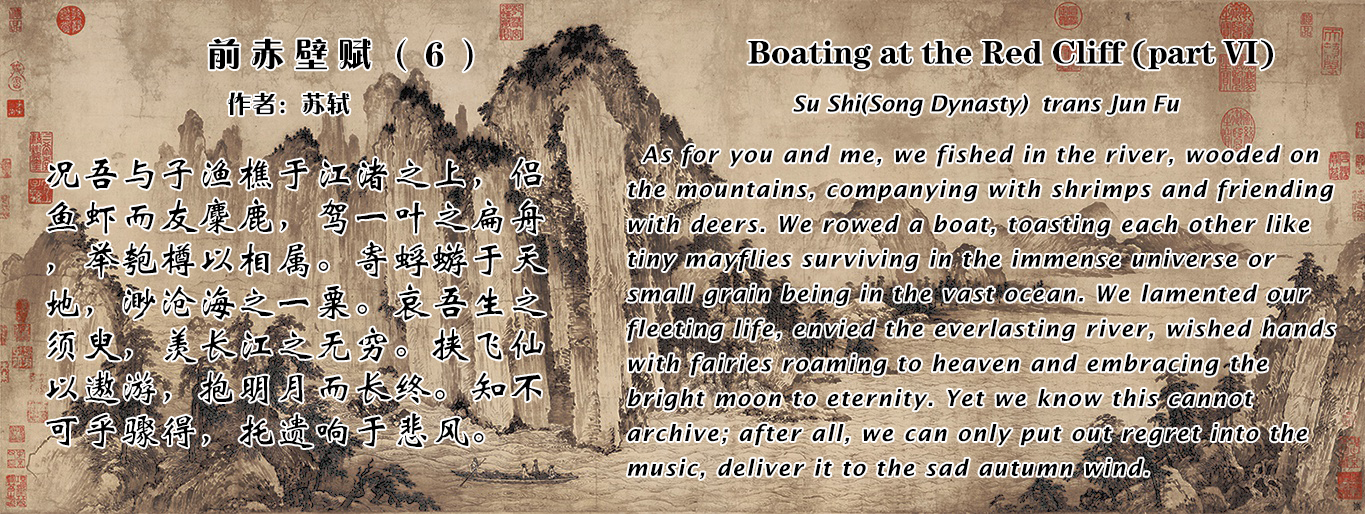
Welcome to https://readjoys.com/,https://www.amazon.com/dp/1734417633,https://www.amazon.com/dp/1734417609,read, buy“The Course of West civilization” online

God represents the unknown and infinite. We can only confirm his existence through faith, and faith is always accompanied by doubt. All of these are entangled together. We believe in the existence of God and always doubt his existence. We both believe in religion and doubt religion. In the end, we can only come to the conclusion that the essence of religion is to believe in gods or supernatural beings, and it is always accompanied by doubt. The problem of understanding religion and God is the same as the problem of understanding the infinite. It is the eternal sorrow and destiny of humans. Humans know the existence of infinity but cannot know for sure what it is? We can only believe in the existence of God and cannot confirm the existence of God, and we are always accompanied by doubting the existence of God. We cannot come to a realm where there is no doubt and absolute certainty of the existence of God because this has exceeded the limit set by God for humans, beyond human reason, entered the realm of non-human, super-human. As a believer, you can only believe firmly and solitarily and continue to believe infinitely without a doubt. Until the appearance of Buddhism Nirvana, Taoism’s flying to the land of the immortal and immortality or experiencing the perfect happiness of returning to God’s embrace like a Christian. Of course, this is also the greatness of humans. Through belief, we can still transcend life and death, return to eternal life, eternal heaven, and return to the origin and beginning of humans.
Muller identified the infinite function as the third cognitive function of humans. Although most people have not yet accepted it, I think this idea is extremely truthful and irrefutable. Religion can be found in any society, no matter what stage the society is in, with or without writing, matriarchal society or paternal society, barbarism or civilization. It is obvious that all humans share the ability to generate religion. This proves that Muller’s understanding of human’s infinite and religious function as the third cognitive function is absolutely correct. I believe that with time, Muller’s ideas will be accepted by more and more people. In existential philosophy, existence is the most fundamental problem of humans and the most profound philosophical thought, which is more stimulating, shocking, and stronger than any other philosophical problem. Obviously, the problem of humans existence is the problem of human origins. since the first day of human consciousness, humans have been thinking about the problems of the origin of infinity and human existence in the initial state of obscurity and have answered these questions through the product of religions and gods. At the same time, because humans share the infinite function of generating religion, the concepts of religion and God are also shared by all humans. Therefore, religion and God are universal in every society, whether low-level or high-level. With certainty, we can say that all humans are thinking about these original problems. I believe that religion’s answer to the origin of infinity and existence is far more reasonable than existentialism. Religion can bring us back to sweet dreams, eternal happiness, and the original place of humans.

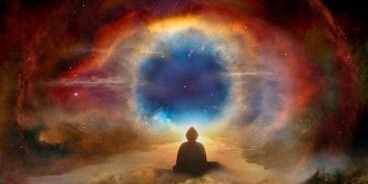

The most attractive view of existentialism is Heidegger’s “poetic dwelling.” However, poets are always a minority, and the high suicide rate among them shows that they are still confused about life. And Sutter’s “existence is reasonable” is a disaster for humanity; much of the chaos in today’s world stem from Sartre’s “existence is reasonable.” Compared with religion, other philosophical and social issues such as perception, reason, morality, politics, and law are sub-level issues. Their impact on humans is far less profound and shocking than religion. There may be no morality, politics, or law in ancient human beings, and ancient humans may not know perception, reason, and philosophy, but there to be no religion is impossible. And religion, in turn, will affect humans’ understanding of perceptual, reason, morality, politics, and legal issues. Since the first day of humans’ owning consciousness, we can imagine that people looked up to the endless starry sky in every corner of the vast earth and envisioned the world behind the starry sky. Through the infinite functions, religion was born in every corner. Gods were also born; Gods have also risen in the depth of everyone’s soul. We feel a holy, sacred, and beautiful ultimate world. Except for religion, apart from the ultimate world produced by religion, I don’t know what else can uphold humans to live such a life, which runs toward death and ends in destruction. I actually do not know the meaning of life. Religion can enable us to understand the meaning of life and the truth of living. Obviously, it has a decisive influence on human life.
Muller further elaborated the process from Infinity to God from the perspective of linguistics. He concluded from many primitive tribal languages and ancient Indian classics that the earliest humans used anthropomorphic language to describe things. Based sun’s function, primitive tribal called the sun as the illuminant and warmer, the river as a guardian, pear, and so on. In the end, the sun is called like father, and the river is referred to as a mother. The sun is finally sanctified as the God who protects us like a father; the river became a god who nurtures us like a mother. The personal God was born; furthermore, the concept of God and holiness is rooted in human subconsciousness. We can deduce this process to countless folk beliefs and primitive worships. When we see the big tree in the sky, it is so lush, vigorous, lofty, shadows the surrounding trees. We naturally think this tree must be a tree spirit with a divine nature to appear so different. When we look at the majestic mountains, towering up to the sky, fading away into the clouds, we can’t help but think that there must be mountain gods living in it to make it too high to climb. The roaring river reminds us of the capricious river gods waving this long river, and so on; there are many such cases. From this, countless fetishism and primitive worship were produced. On this basis, polytheism was generated, and finally, monotheism was born. ③
Then all religions came into being; the gods slowly rose up, the sacred light descended from the sky, the Holy Spirit flowed in our hearts, the feeling of desperation slowly calmed down, the shadow of death also quietly faded off. Human life also turns meaning and brilliance.


Note:
① Kant “Critique of pure reason”, , trans., Deng Xiaomang, people’s publishing house
② FM Müller “Lectures on the origin and growth of religion as illustrated by the religions of India”, trans, Jinze,Shanghai People’s publishing house, p 14-15
③ FM Müller “Lectures on the origin and growth of religion as illustrated by the religions of India”, trans, Jinze,Shanghai People’s publishing house,, p 104-140.”Emile Durkheim “The Elementary Forms of Religious Life” Central University of Nationality Press trans, trans, Lin zongjin p 170-171

Welcome to donate and support. Your support is the biggest driving force for the author’s writing. I believe it is also support for God and God’s cause. Friends with WeChat and Alipay can click on the QR code below to donate.

Friends without them can use the following PayPal account to donate, https:/ /www.paypal.me/readjoyinc.
 the course of Western Civilization
the course of Western Civilization



